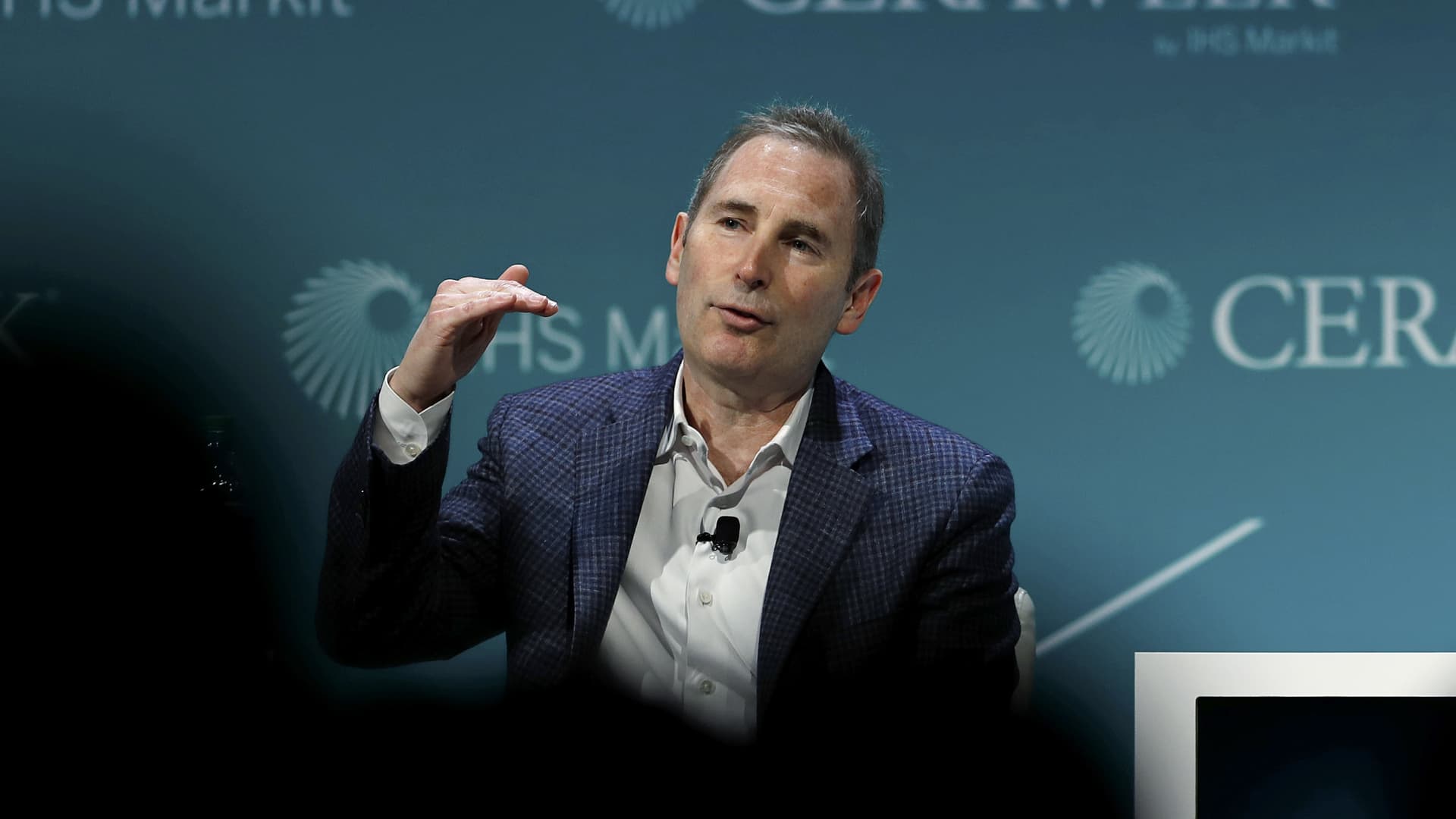
Andy Jassy, CEO of Amazon Web Services, speaks at the 2019 CERAWeek by IHS Markit conference in Houston, Texas, on March 11, 2019.
Aaron M. Sprecher | Bloomberg | Getty Images
Amazon CEO Andy Jassy said the company needed to add a fuel and inflation surcharge to deal with rising costs tied to inflation, the coronavirus pandemic and the war in Ukraine.
“At a certain point, you can’t keep absorbing all those costs and run a business that’s economic,” Jassy told CNBC’s Andrew Ross Sorkin in a “Squawk Box” interview on Thursday.
Amazon has tried to assume all those costs wherever possible, Jassy said, but it became increasingly untenable as the pandemic continued and after Russia invaded Ukraine earlier this year. On Wednesday, Amazon imposed a 5% fee to U.S. third-party sellers who use its shipping and storage services.
The surcharge will go into effect in about two weeks for sellers who use Amazon’s Fulfillment by Amazon program. Merchants pay to have their inventory stored in Amazon’s warehouses and to make use of the company’s supply chain and shipping operations.
“We’re very aware that sellers have costs as well,” Jassy said. “We’ll keep looking at how costs evolve and revisit.”
Some sellers expressed frustration over the fee, noting that they had already absorbed another FBA cost increase that went into effect in January.
Amazon’s expenses have jumped since the start of the pandemic as the company has tried to hire and retain enough employees to keep up with demand in its warehouses. Facing staffing shortages at some facilities, the company often had to send packages over longer and costlier distances to locations with enough people available to receive them.
Jassy, who succeeded Amazon founder Jeff Bezos in July, also pointed to the war in Ukraine, which has pushed up the prices of oil and metals, and China’s latest Covid-19 outbreak, which has disrupted tech supply chains.
“I think some of the issues happening right now in China where, you know, as there are variants and they’re being very conservative and locking down production create some issues in getting products as fast as we need,” Jassy said. “It’s still more expensive and more time-consuming to get products into the country. So there’s still supply chain challenges.”







